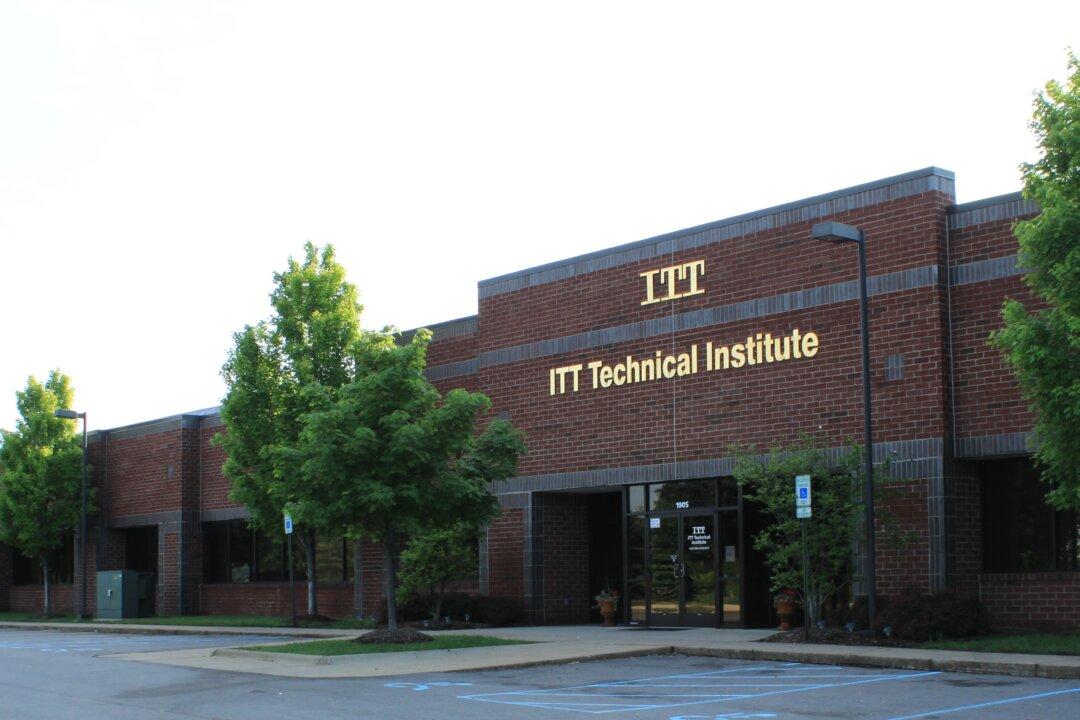ITT Technical Institute, a for-profit college with campuses across the United States, is accused of misleading its students with a deceptive student loan program and empty promises. In an odd turn of events, two Chinese investors have bought substantial shares in the college, which appears to be on the verge of shuttering its doors.
The for-profit education sector in the United States, once a high-flier, has been struggling with lawsuits, financial crises, and government scrutiny since 2010. And ITT is the latest to face such problems.
Founded in 1946, ITT provides technology-oriented undergraduate and graduate degree programs. It is owned by a publicly traded company, ITT Educational Services Inc. (NYSE: ESI) and serves roughly 40,000 students at more than 130 campuses in 39 states and online.





